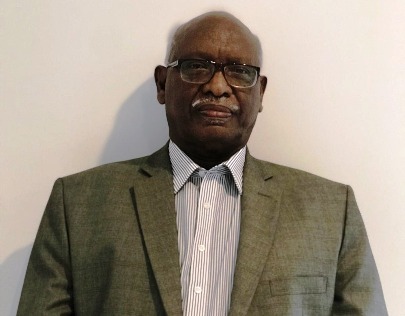The Struggle of a New Agenda in the African Union Arena

Zain Al-Abidin Saleh Abdul Rahman
In a statement issued by the Vice President of the Sovereignty Council, Malik Agar, he addressed the UAE’s attempt to impose an agenda on Sudan through its invitation to a special conference on Sudanese affairs on February 14, 2025. This conference, to be held on the sidelines of the African Union summit, includes participation from international and regional organizations such as the United Nations, the African Union, the UAE, Ethiopia, and other countries, including Egypt, which refused to attend. The objective of this conference, as stated in the announcement, is to distort facts, continue aggression against Sudan, and manipulate the regional political scene by creating discussions that divert attention from Sudan’s true interests. In its aggression against Sudan, the UAE has successfully recruited a segment of Sudanese citizens and media figures to aid in achieving its goals.
Two days ago, the “Taqaddum” alliance collapsed under the claim that a faction wanted to establish a parallel government to the one in Port Sudan in alliance with the “Al-Daglo militia” in the areas under its control. This faction openly aligns itself with the militia, while the other faction, calling itself the “Sumood” alliance, presents itself as a neutral entity advocating for a ceasefire. However, its actions reveal that it is part of the UAE’s political scheme, serving its broader conspiracy against Sudan.
The first move of the “Sumood” alliance was to assist the UAE in its efforts to hold the conference scheduled for February 14, 2025. It was no surprise that “Sumood,” led by Abdullah Hamdok, sent its first message to the African Union’s Peace and Security Council regarding the Sudanese crisis, which will be discussed in the council’s session on February 14, 2025. The message stated: “The global spotlight must be placed on the tragedy of war in Sudan and make it a priority on the international agenda due to its severe threat to regional and international peace and security. Efforts must be made to achieve a ceasefire and launch a Sudanese civilian dialogue framework to establish a comprehensive peace. It should also be emphasized that Sudan lacks legitimacy, and lifting Sudan’s suspension from the African Union must be conditional on tangible progress in stopping the war.” This message makes it clear that the division within “Taqaddum” was not due to differences in methods but rather a strategic division of labor dictated by their foreign backers.
At the same time, the Republican Party issued a statement declaring its separation from both factions of the divided “Taqaddum” alliance. The Republicans stated: “We would like to inform the Sudanese people that the Republican Party will not be organizationally affiliated with either of the two groups, regardless of the new alignments they may adopt in their opposition to war advocates and enemies of democratic transition.” Why did the Republicans distance themselves from both sides? Is it because the stage now requires operating from different angles, with each group playing its assigned role? Notably, two key figures of the Republican Party, Al-Noor Hamd and Omar Al-Qaray, were among the most vocal supporters of the militia’s “strength and ferocity,” as they had previously stated. Has their admiration for the militia now faded?
Although the Sudanese Armed Forces have secured victories in Sennar and Al-Jazira states and are now close to liberating the capital, these successes do not mean that the conspiracy against Sudan has ended. The victories may prompt various factions to reassess their positions—both those supporting the militia and those backing the army. This reassessment could lead to minor adjustments in agendas, but it does not signify the end of external interference, which will continue in different forms, with its actors modifying their tactics and redistributing their roles as required.
The fragmentation of “Taqaddum” into three groups—one focused on forming a government, another on political maneuvering, and a third represented by the Republicans—will reveal its true purpose over time. The admiration expressed by Al-Qaray and Al-Noor Hamd for the militia suggests that their ties remain strong, but they are now adjusting their approach to make it seem as though multiple independent movements are opposing the “Army and People” faction. The popular support for the army necessitates a strategic realignment of priorities to focus on the battle until complete victory is achieved. Any other agenda at this stage could negatively impact the pro-army faction. This faction remains unified in its stance against the militia and its affiliates, believing that defeating them is crucial to preventing their return to both the military and political arenas. Any discussions about negotiations or political settlements while the militia still exists would mean reverting to the pre-war agenda.
The victories achieved by the Sudanese Armed Forces and the steadfast support of the people are the primary reasons for the changes within “Taqaddum.” However, this transformation is more about restructuring tasks rather than an actual difference in vision. Some within “Taqaddum” have told the media that their dispute arose over the method—whether to establish a government in militia-controlled areas—yet differences over methods alone do not typically lead to factional splits with new names. “Taqaddum” itself had become a burden due to popular rejection, necessitating a rebranding. Since the same leadership figures continue to run these new alliances, there will be no real change in their thinking. Additionally, their foreign sponsors are not interested in independent-minded leaders but rather in obedient ones who will execute orders without question.
The battle has entered a new phase, and it is crucial for the army leadership to maintain its strong bond with the people by unifying the agenda rather than engaging in premature political disputes. Now is not the time for new political agendas—only victory should be the priority. May Allah grant us wisdom and clarity.



